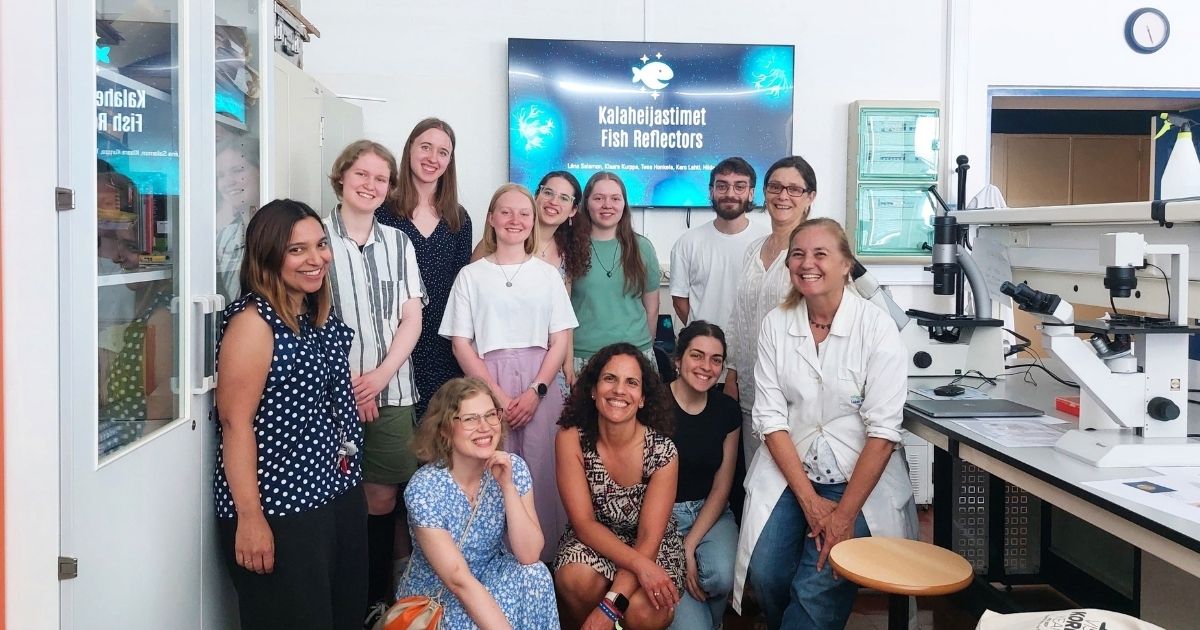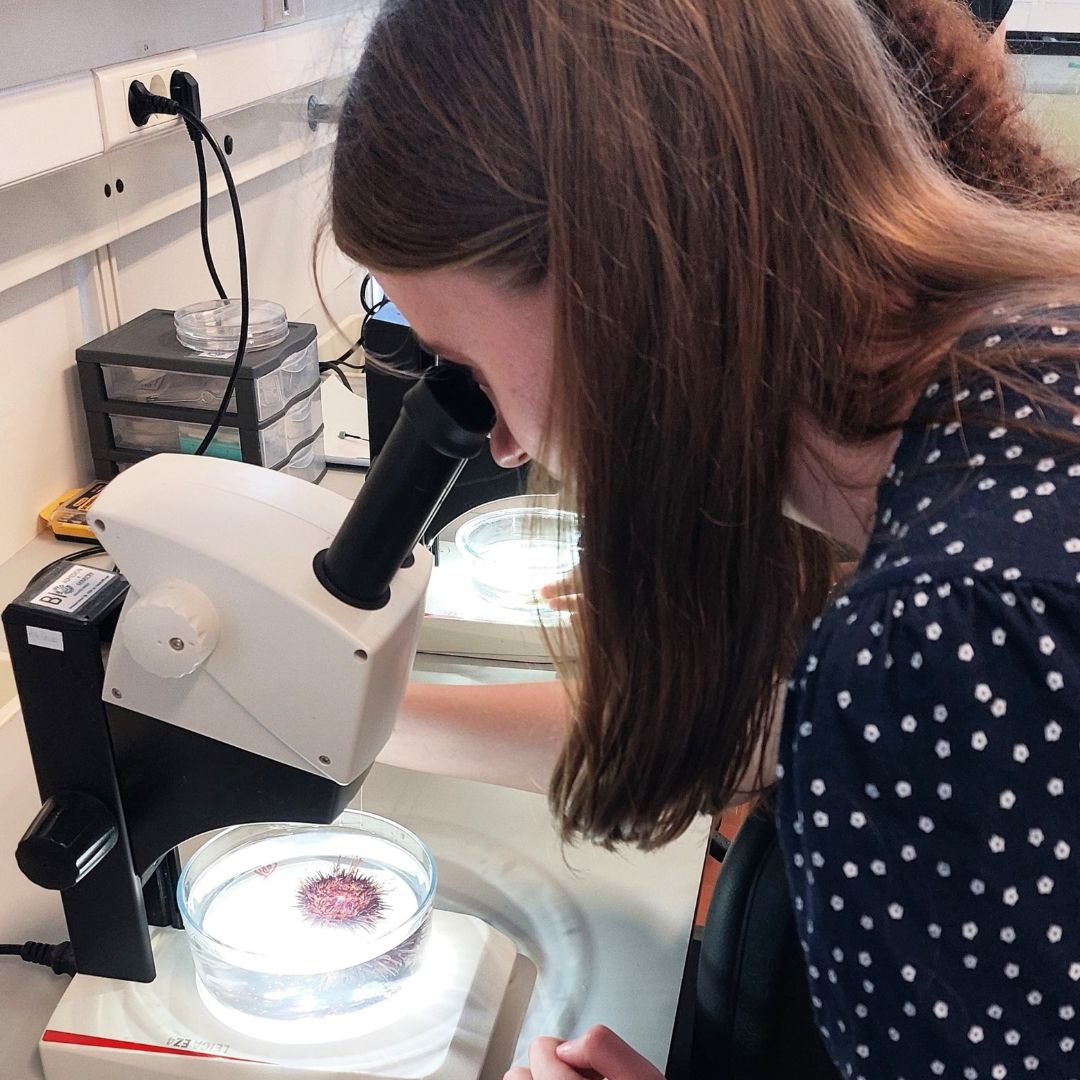From Helsinki to Lisbon: young Finns meet science at MARE
Five Finnish students came to Lisbon with a mission: to bring their idea for a more sustainable world and exchange it for inspiration. Accompanied by Katariina Tonttila, from the Children and Youth Foundation, they visited MARE at the Faculty of Sciences of the University of Lisbon (FCUL) on June 17. The visit to Lisbon was part of a study trip offered to the winners of the national Spring competition in Finland, which challenges young people aged between 15 and 19 to come up with innovative solutions to the problems of the present.
The students are part of the Kalaheijastimet team, whose project proposes ecological reflectors made from fish skin and scales - a creative way of using natural waste to increase road safety. The idea stems from a very real need in their country: in Finland, the days are long and bright in summer, but in fall and winter darkness comes early and stays for many hours. The use of reflectors is therefore strongly encouraged and even required by law as a protective measure for pedestrians. These small objects make a huge difference: they drastically increase visibility on the roads and help save lives.
At MARE, the students were welcomed by two research teams who showed them how science is also inspired by nature to create solutions with real impact.
At the Bioadhesion and Biomimicry Laboratory, researcher Romana Santos from MARE/ARNET at FCUL, with the support of Mário Rocha and Inês Caldeira, introduced them to the work she has been doing for years with marine organisms. "We study animals that live in the intertidal zone, an extremely challenging environment. These organisms have had to evolve ways of anchoring themselves so as not to be carried away by the waves," he explained. Nature's answer? Biological adhesives, made up of proteins and sugars, which stick effectively in humid and salty environments, and which could inspire biodegradable and biocompatible adhesives for medical applications.

This was followed by a visit to the Algoteca-Alisu Laboratory, which has a living collection of microalgae maintained by MARE and FCUL, coordinated by Ana Amorim and supported by Helena David and Luísa Dâmaso. There, the students were able to observe various species of marine phytoplankton under the microscope, learn about the projects that explore the ecology and biotechnology of algae and even discover how these organisms are invisibly present in our daily lives, from food to cosmetics. An immersion in the invisible world that sustains the oceans and can help answer many of the environmental challenges of our time.
At the end of the visits, the students presented their project to the MARE researchers. The conversation that followed touched on concrete challenges: how to eliminate the odor of the raw material without losing its reflective properties? How to make the product more viable and scalable? Romana Santos suggested taking a closer look at what gives fish scales their ability to reflect light and thinking of ways to replicate it without relying directly on the fish. An invitation to creativity, based on science.
The brief but remarkable meeting was more than an exchange of knowledge. It was proof that simple ideas, when crossed with serious research and people willing to listen, can gain new layers of meaning. And perhaps, who knows, a new shine too.
Text by Vera Sequeira
